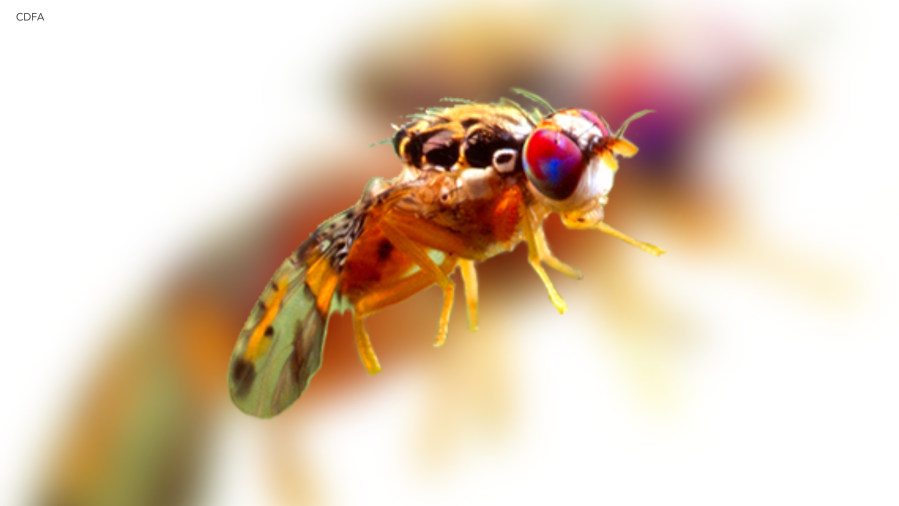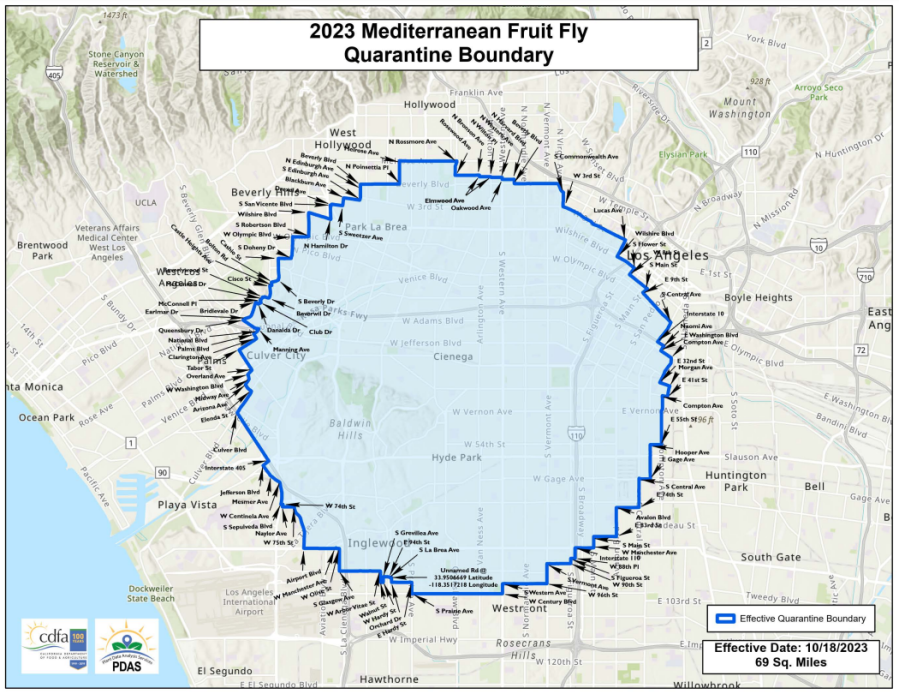It’s fly vs. fly in the skies over Los Angeles.
Earlier this month, the California Department of Food and Agriculture quarantined 69 square miles of metro L.A. after invasive and destructive Mediterranean fruit flies were found at a home in Leimert Park.
Now, officials are planning to use small planes to drop millions of the insects in an effort to eradicate them, SFGATE reports.
So how does it work? In short, through birth control.
Jay Van Rein, a spokesperson for the CDFA, told SFGATE that officials plan to drop approximately 250,000 sterile male fruit flies per square mile in the quarantine area every week for six months, or perhaps longer.
The sterile males mate with the females which fail to produce offspring, reducing the population over time.

Van Rein says the Preventative Release Program (PRP), as it’s called, has been used effectively to manage invasive species since 1996.
The quarantine radius includes parts of downtown and South L.A., Hyde Park, Baldwin Hills, Culver City, Inglewood, Pico-Robertson and Mid-Wilshire.
Those who live within the zone are urged not to transport any fruits or vegetables from their property and to double-bag them in plastic before tossing them in the trash.

The Mediterranean fruit fly is very tiny -only about 1/4 inch in length- but they can potentially cause hundreds of millions of dollars in damage to crops if left unchecked, officials said. When a female lays eggs in a fruit or vegetable, they hatch into maggots that tunnel through it and cause rot.
A normal Medfly has a blackish thorax marked with silver, and a tan abdomen with darker stripes extending across the abdomen, according to the CDFA. The ones that will be dropped by the millions in Los Angeles will be marked with a special purple dye.
In July, a large portion of the Santa Clarita Valley was placed under quarantine after more than 20 invasive Tau fruit flies were detected in the Stevenson Ranch area.
In other invasive fly news, agriculture officials have scheduled a news conference for Thursday in Thousand Oaks to address the recent discovery of the Queensland fruit fly in a residential neighborhood.




















